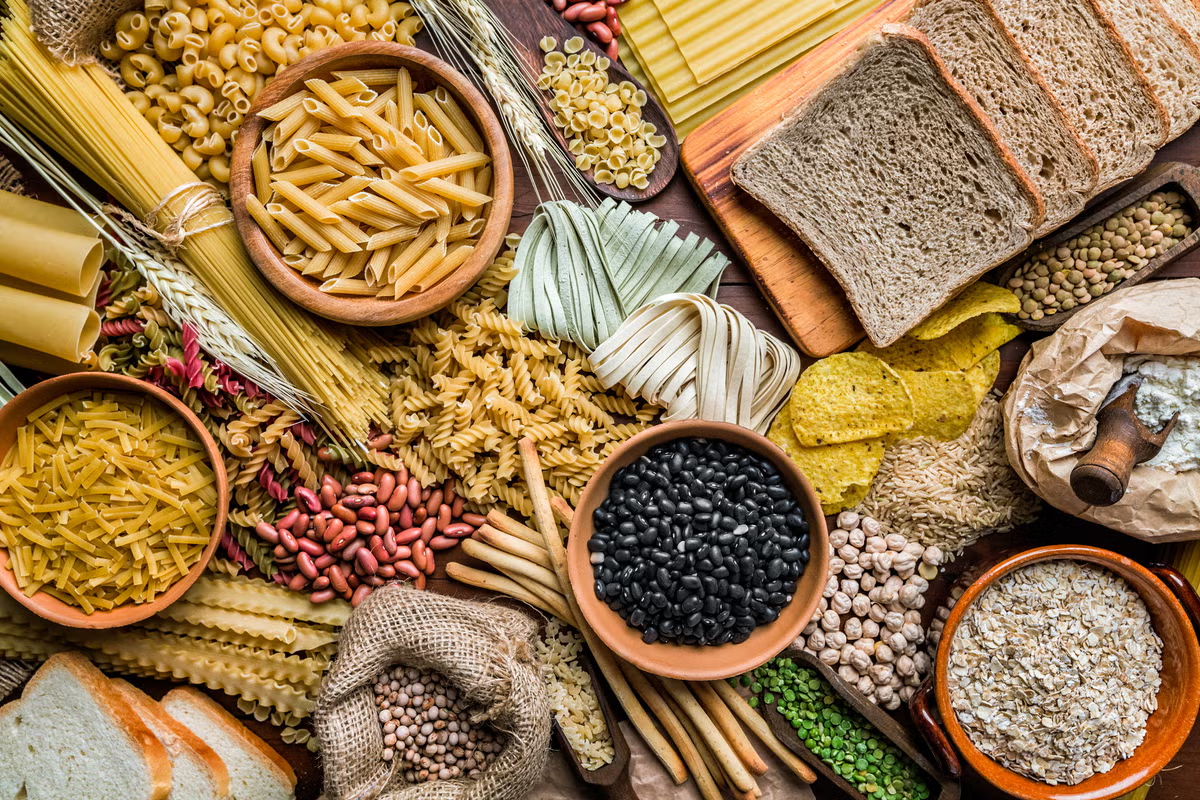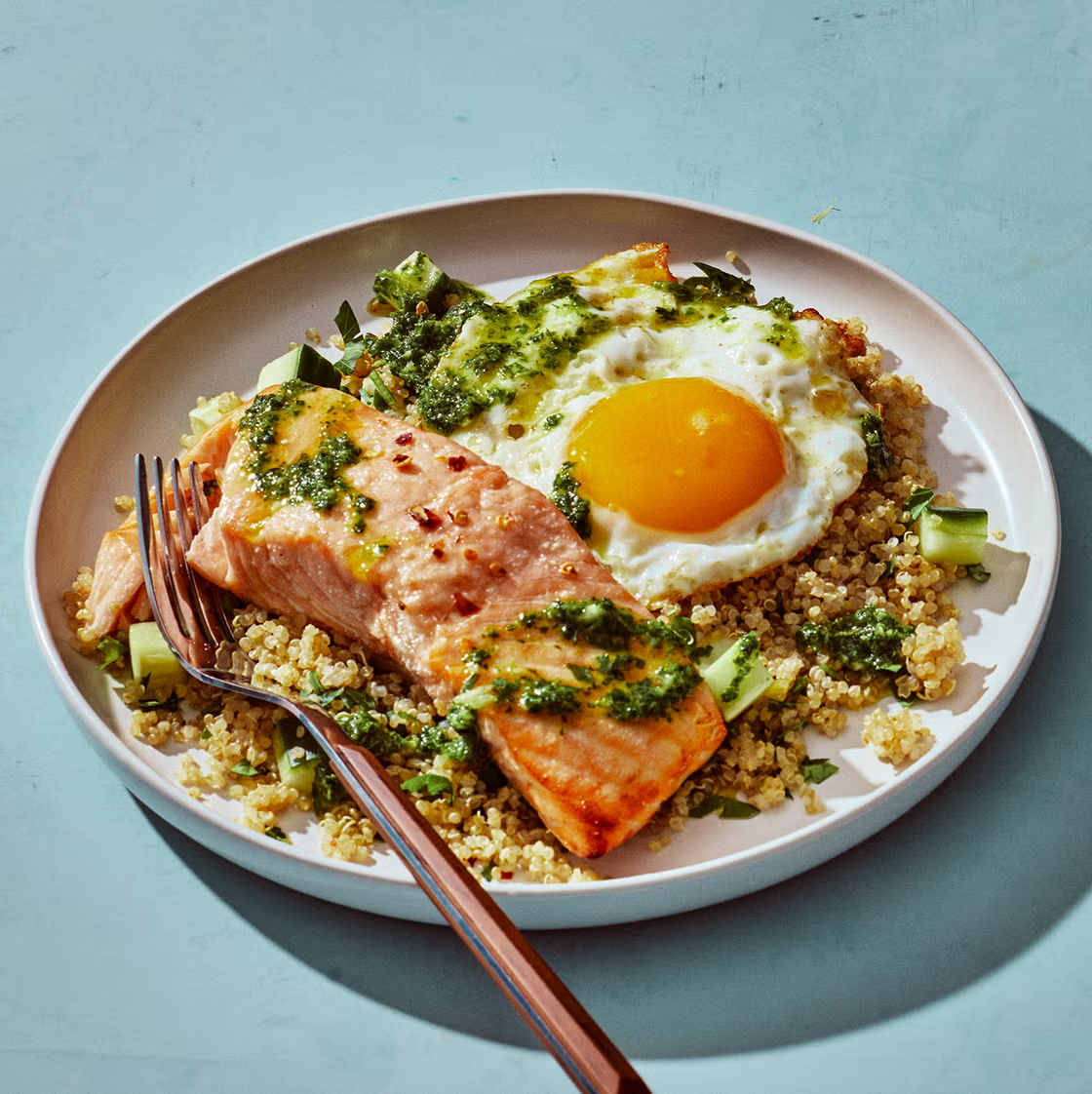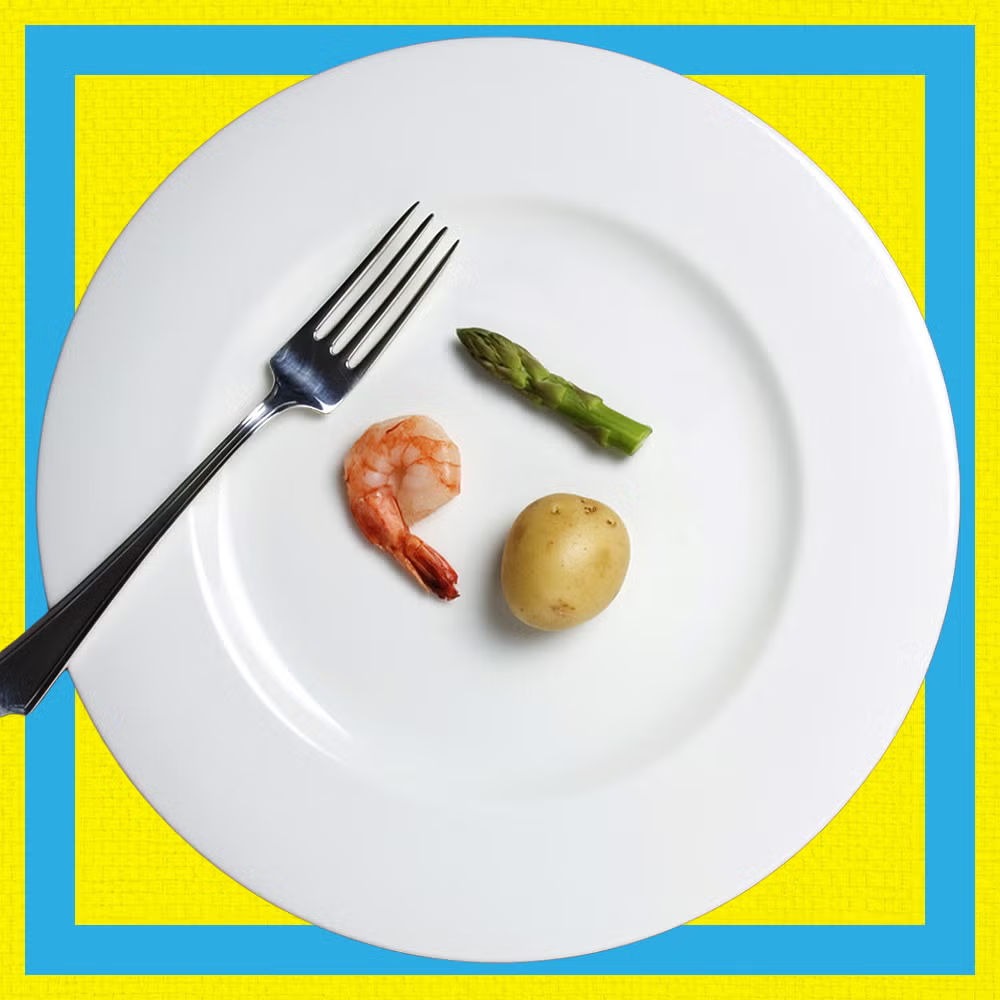IF YOU’RE ANYTHING like us, you reach for your go-to bag of almonds in your desk when that late afternoon hunger hits. You likely already know that nuts are a nutrient-dense, tasty snack, but can they help you lose weight?
“Nuts are a powerhouse in the nutrition department, being a source of plant based protein, fibre, and healthy fats along with a boost of micronutrients and antioxidants,” says Lauren Manaker, R.D.N. ”Eating nuts has been linked to a slew of health benefits, from supporting heart health to supporting cognitive health and so much more.”
What’s more, Manaker says, several studies have found that nuts may support weight management goals, making them a solid snack choice if you’re looking to shed weight. Below, we take a look into whether this snack time favourite can be a pivotal part of a weight-loss friendly diet.
Are nuts good for weight loss?
That depends on the size of your servings.
Nuts are as calorie dense as they are nutrient dense – and, eating too many may put you into a calorie surplus and cause you to gain weight. You need to be in a calorie deficit, meaning you’re burning more calories then you’re taking in, to lose weight. As long as you consume nuts in moderation (sticking with just one serving – not the whole bag), their nutrient content may help your weight loss goals.
Nuts can absolutely be helpful for weight loss when incorporated as part of a balanced diet. A 2021 meta-analysis found that those who consumed a higher amount of nuts had a lower body fat, says Zenker. A 2019 study out of Harvard’s T.H. Chan School of Public Health had similar findings: increasing daily consumption of nuts lowered long-term weight gain in adults. Their fibre, protein, and fat content may support weight loss.
“These nutrients help us feel satiated and full, which can lead to decreased likelihood of overeating. Consuming adequate protein during fat loss helps mitigate muscle loss. Fibre not only helps us feel satiated and slows blood sugar spikes, but it also helps keep our gut healthy,” says Zenker. And, research suggests that a healthy gut microbiome is associated with better weight loss outcomes, as well as many other health markers.
Are nuts healthy?
Oh yeah.
“Nuts can be a healthy part of your daily diet, as they provide fibre, unsaturated fats, protein, antioxidants, vitamins, and minerals,” says Avery Zenker, R.D., at EverFlex Fitness. Those vitamins and minerals include magnesium, zinc, calcium, iron, selenium, vitamin E, and B-vitamins. Plus, nuts are low in saturated fats, carbohydrates, sugar, and free of trans fat and cholesterol.
Not all nuts are created equal in terms of their micronutrient components, though. “Different types of nuts contain their own set of nutrients and health benefits,” says Zenker. “Most people in the United States don’t consume the recommended amount of fibre, magnesium, vitamin E, iron, and B-vitamins,” and nuts can help bridge that nutrition gap.
Nuts also fit into many different dietary patterns that are associated with weight loss, including the Mediterranean diet, Keto diet, vegetarian diet, and plant-based diets. “They’re also a quick and convenient snack that doesn’t take much time to prepare, which makes them a good swap for more processed convenience snacks,” Zenker says.
Here are the 6 best nuts for weight loss, according to dietitians.
1 Almonds
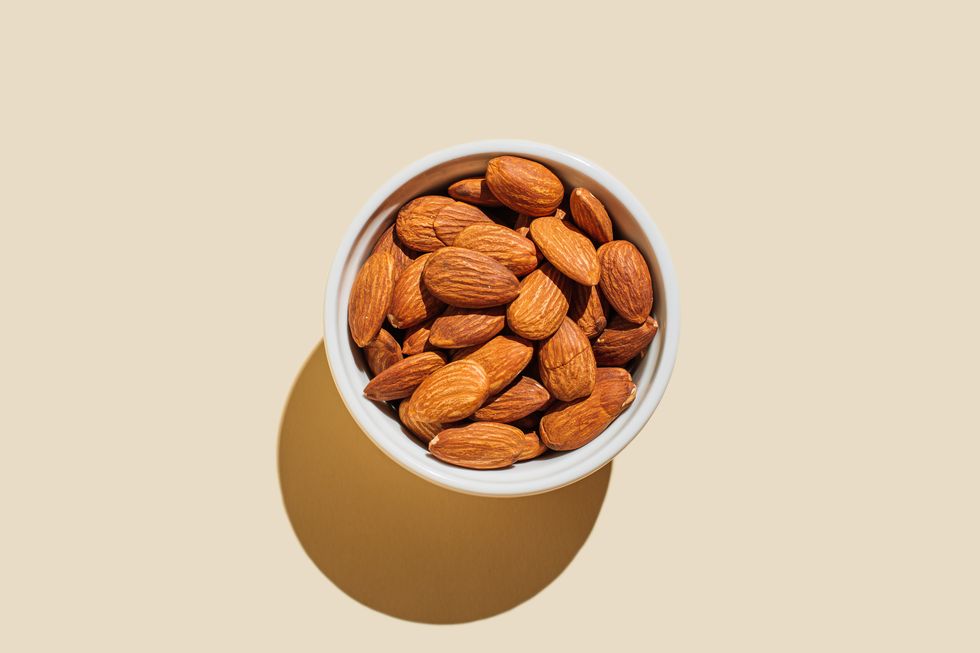
TANJA IVANOVA//GETTY IMAGES
A 28g serving of whole almonds (around 23 almonds) contains 3.5 grams of fibre, 6g of protein, 6g of carbohydrates, 14g of fat, 1g of sugar, and only 164 calories.
“This serving also provides 75 mg of calcium, 208 mg of potassium, and 7 mg of vitamin E,” says Zenker. The protein, fibre, and healthy fats content of almonds help us feel satiated. “Almonds are a great snack paired with fruit or other whole foods.”
2 Pistachios
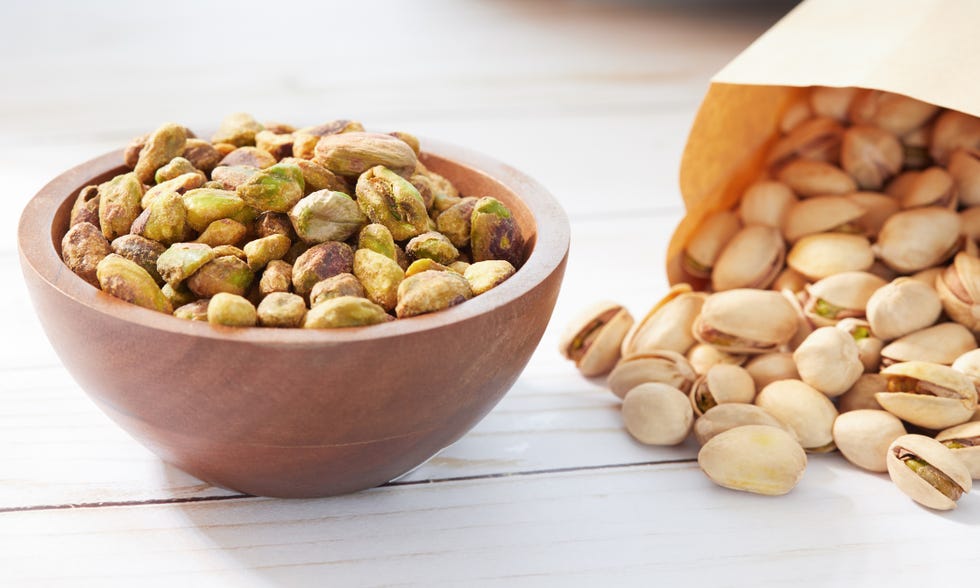
THANASIS//GETTY IMAGES
“Pistachios are a unique nut because they are a complete source of plant-based protein,” said Manaker. Pistachios are also one of the lowest calorie nuts, with only 160 calories per ounce (which is around 49 pistachios).
Bonus: “Data suggests that having to manually remove the shell from pistachios helps people manage how many nuts they eat, ultimately potentially helping with portion control. The leftover shell can also act as a visual cue to remind the consumer how many pistachios they have already eaten,” says Manaker. Other data has also linked pistachios to weight loss and improved triglycerides among people with obesity.
3 Peanuts
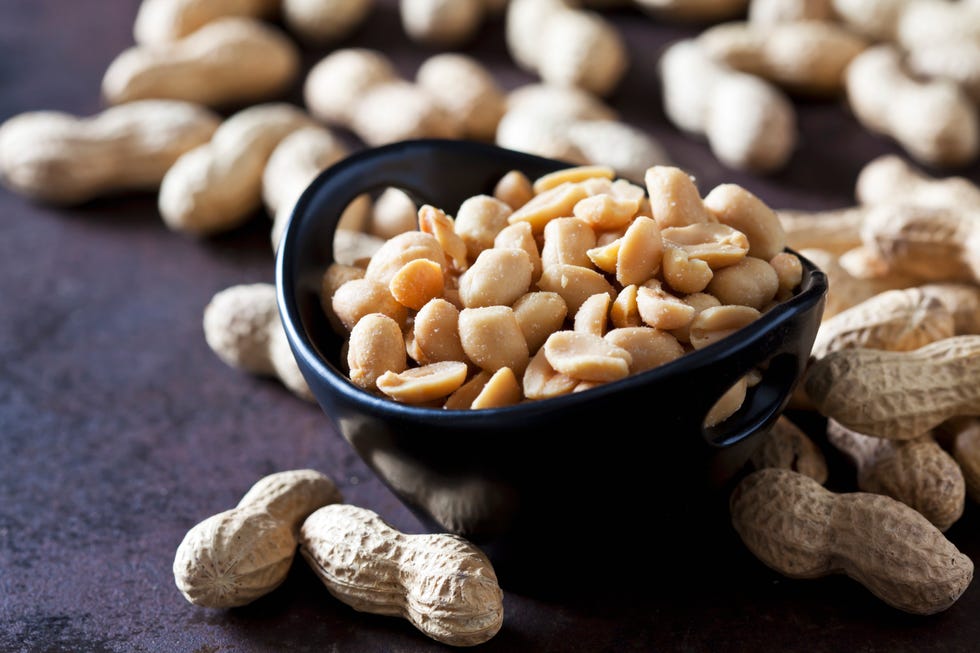
WESTEND61//GETTY IMAGES
This classic choice makes a great snack if you’re on a weight loss journey.
“Peanuts are a popular and widely available nut. A once-ounce serving contains slightly more protein than almonds (7g), slightly less fibre (2.5g), and 162 calories,” says Zenker.
Prefer to go the peanut butter route? “When it comes to peanut butter, you may opt for natural peanut butter that contains just peanuts, and perhaps a dash of salt,” she says.
4 Walnuts
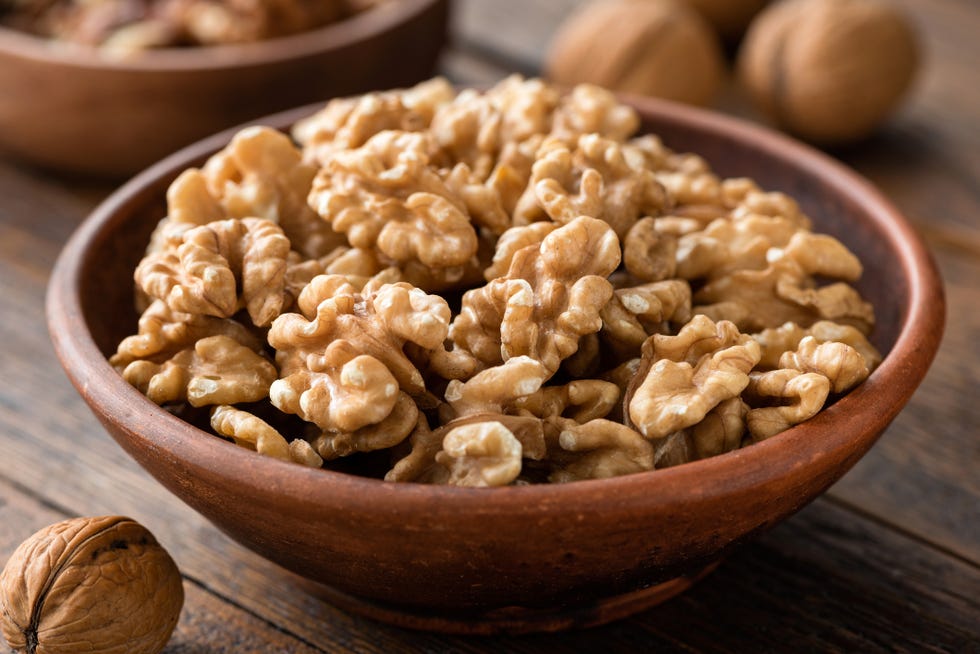
RX0NT//GETTY IMAGES
As Zenker shared, walnuts contain omega-3, which is an essential fatty acid that supports brain health, and is anti-inflammatory.
“The form of omega-3 in walnuts is alpha-linoleic acid (ALA), which is not found in high quantities in many foods,” she says. Also, this nut packs a large amount of flavour into their small size, so you don’t need a lot of them to feel satisfied.
5 Brazil nuts
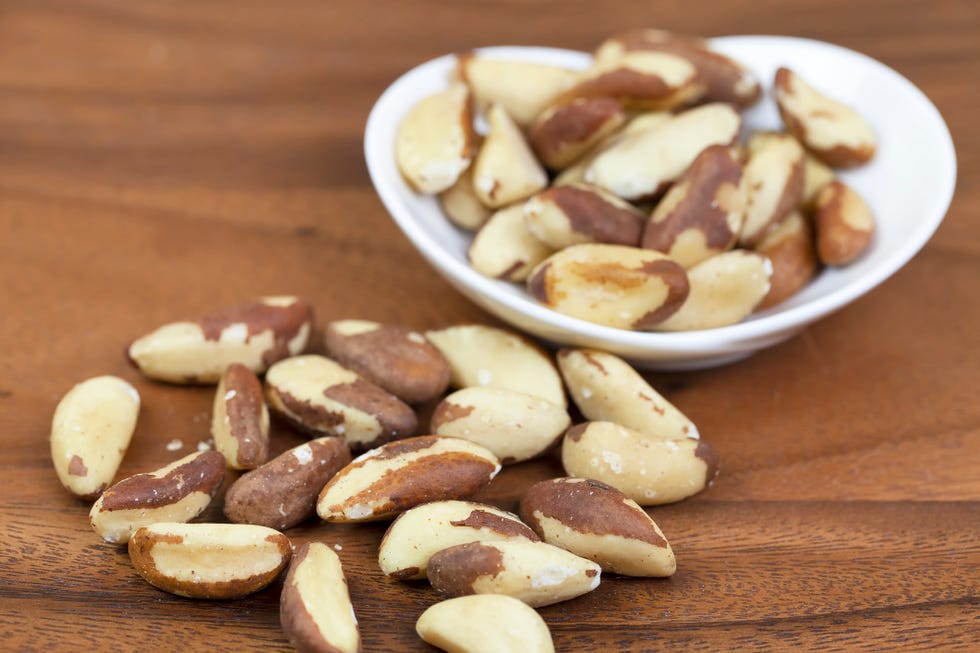
MIKROMAN6//GETTY IMAGES
You might not see these nuts everywhere, but it’s worth seeking them out at a whole foods store or ordering them online.
“Brazil nuts are one of the highest sources of selenium. Selenium is a mineral and antioxidant that plays a number of roles in the body,” Zenker says, which plays a role in thyroid health. “Healthy thyroid function is important for metabolism and weight management. Just one medium Brazil nut has all the recommended daily selenium for adults (55mcg).”
This may be more pertinent for individuals with thyroid disorders. “It’s important to keep Brazil nut intake in moderation, as the upper limit for selenium intake is 400 mcg,” Zenker says.
6 Whole nuts
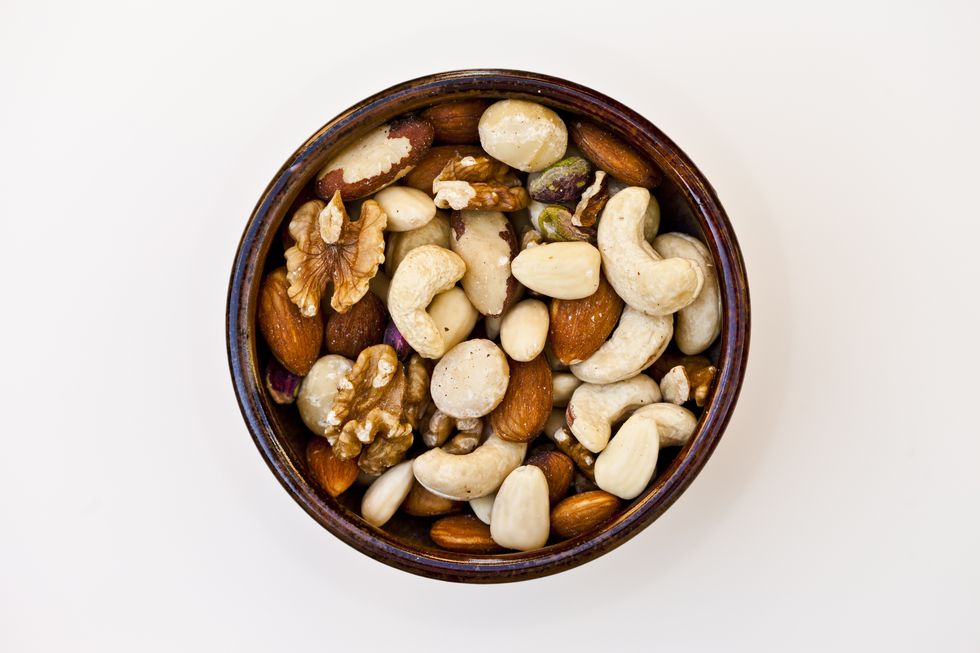
JENNY DETTRICK//GETTY IMAGES
In general, it’s worth singling out whole nuts as preferable to processed nut snacks or nut butters as a companion in weight loss.
“Whole nuts may be preferable for weight loss, since we may absorb fewer calories from whole nuts compared to nut butters,” says Zenker. “In addition, nut butters are typically easier to eat larger portions of than whole nuts.”
Nuts can also benefit individuals with a goal of weight loss who also experience insulin resistance, such as in diabetes. “Nuts are low in carbohydrates and high in fibre, making them a great choice for blood sugar management,” she says.
Via Men’s Health US
Related:








